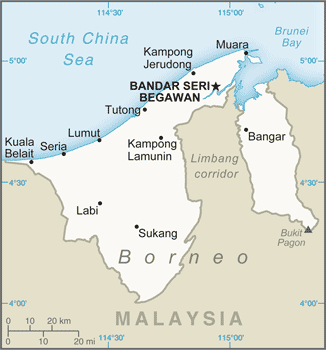So the House of Representatives passed the New Year’s Fiscal Cliff Deal that the Senate passed in the middle of the night by a large margin, a few weeks after Speaker John Boehner’s unilateral “Plan B” proposal failed abysmally because neither the House Democrats nor his own Republican Majority were interested. So instead of the conservative Republicans getting a pretty good deal, they had to sit and watch in impotent rage as Speaker Boehner, 81 other Republicans, and nearly all the House Democrats held and passed a vote on a pretty damn great deal for the Democratic White House.
Here’s the quick summary of what Democrats got:
It’s a pretty good deal (for us). No changes to entitlement benefits (i.e. Social Security or Medicare), income taxes go back up to Clinton levels for the super-wealthy (individuals making over $400k/yr, couples making over $450k/yr), everyone else’s income taxes remain at the Bush Tax Cuts levels, unemployment insurance benefits are extended after expiring a few days back, all scheduled “sequester” spending cuts are delayed for 2 more months, milk prices are stabilized, and there’s some delay on a Medicare payment restructuring plan with regards to doctor compensation (but I don’t know much about that). The payroll taxes will roll back up to at least 2008 levels (which helps Social Security’s solvency), which was theoretically always supposed to happen eventually, since the cuts were a short-term stimulus. Democrats only conceded about $200 billion over ten years in potential revenues on the marginal incomes between $200k/$250k and $400k/$450k, which is not that big a problem in the grand scheme. I guess this means there’s a new tax bracket, which is fine by me. There’s also no resolution on the next debt ceiling raise that will need to happen in a few months, but that wouldn’t have been likely in an 11th Hour (or 13th Hour?) deal anyway, and it wasn’t urgent.
About those Spending Cuts:
If this were still going to be the ultra-obstructionist, big-Republican-majority 112th Congress we’ve had since January 2011, it would be a big problem that the spending cuts were delayed by 2 months, because it would just manufacture another artificial crisis/showdown in two months. But the 113th Congress is sworn in on Thursday of this week, and that means a new calculus, even if the Republicans still control the House. I think the 2 month postponement only helps the Democrats, not the Republicans. It’s now more on our turf to decide. Tuesday was the last opportunity for House Republicans to use their big 2010-won majority to shape cuts, and they blew it. Their majority isn’t as big once the 113th Congress is sworn in on Thursday. If Boehner and the remaining GOP moderates keep caving, Pelosi, Reid, and the White House will be calling the shots on things like spending cuts.
Granted, that’s obviously a big if. So let’s examine whether or not that is likely to happen. The 113th Congress will start with a Republican majority with only a 23 seat edge. I think that’s probably in the neighborhood of the size of the northeast/northern Republicans and the small cadre of people who still back Boehner to the hilt. They won’t vote with the Democrats on a lot of stuff, but they’ll vote with them on quite a few national-scale priorities if Boehner asks them to. Boehner won’t get voted out as speaker, but he has clearly lost all control of his caucus. Previously he could control his caucus to some extent, so he could be obstructionist and fight the White House and still get things. But now he can’t deliver Republican majorities for anyone’s bills. His only power play now — to demonstrate any level of control over the situation and to leave any kind of mark in his tenure as speaker — is to show that he can get some things, or rather any things, through. (Because at the end of the day, he’s still not one of the Burn Everything Down tea party Republicans, and he probably thinks of himself as a statesman.) Those things will from now on be designed by the White House and by the Senate Democratic Leadership, and they will only pass with Democratic help in the House. If the filibuster gets reformed, the Senate Democrats will have an even easier time passing legislation to send to the House. So Boehner will have to choose between trying and repeatedly failing to pass conservative legislation because neither the House Democrats nor the House Republican Conservatives will vote for it or trying to persuade House Democrats to vote with him and two dozen Republicans on centrist policies. And some Republicans will agree to do this either because they are actually moderates or because they realize that they are more likely to retain the Republican majority in 2014 by being able to claim some amount of credit and cooperation on accomplishing some stuff than by preventing anything from getting passed for two years. A lot of the few remaining folks in the Boehner loyalist cadre were veterans of the Gingrich Majority of the 1990s that almost collapsed in the 1998 & 2000 elections due to inability to pass almost anything and get it signed into law. The Republicans already got dinged badly in the 2012 House elections (and would probably have lost their majority were it not for favorable redistricting by the state legislators elected in the 2010 Republican wave) because Americans saw them as uncooperative bordering on saboteurs. Right direction or wrong direction, Americans nearly always prefer action in some direction over action in no direction.
About that Debt Ceiling:
The debt ceiling, untouched in this middle-of-the-night deal, is going to need to be raised again in, I guess, March or thereabouts. I’m not totally sure of the timeline but it’s not all that important here. It’ll be after the spending cuts postponement is up in 2 months. But it’s another point where the 2011 Republicans would have seized the opportunity to create a crisis and force a showdown right up to the brink of disaster. They did that in 2011. But the Republican majority and Speaker Boehner in particular won’t have that kind of leverage anymore.
I think the world-ending showdowns from 2011 and 2012 are probably over for the next two years or will be far, far less frequent. Once again, Boehner’s majority will be a lot smaller starting Thursday (only a 23 seat edge) in the 113th Congress, and he no longer has influence over most of that majority. He and some of his supporters would really prefer not to bring down the government and economy, even if the conservative wing is claiming to be just fine with that outcome. Since he’s never going to reach a deal that could win a Republican majority and Senate and White House passage, and will in fact embarrass himself every time he tries (as happened with the “Plan B” proposal), he no longer has an incentive to futz around trying to get such a deal — and the White House knows that. No leverage for him, now. Likelier scenario is that he bangs his chest a bit and then puts together a deal with the Senate Majority and White House that the House Minority Democrats will back. And then he, his merry band of two or three dozen Republicans who aren’t complete maniacs on the debt ceiling, and the House Democrats will cobble together a slim majority and pass a deal. The White House, I believe, has already said that they will exercise the Amendment 14 Section 4 option (a unilateral raise) if Congress fails to raise the debt ceiling. They don’t want to do that — it’s still an open question has to whether or not the Courts would accept it and no one really wants to find out the hard way — but they will do it if they have to. So he can negotiate or not negotiate, but the debt ceiling will be raised either way, so it’s in his interest to negotiate the best deal he can get, given that this White House would prefer a deal to that extreme option.
One final unavoidable caveat to all of this:
Never underestimate the power of the current crop of Republicans to cut off their noses to spite their faces. All of what I’m saying could be woefully over-optimistic and naive. They’ve shown on more than a few occasions that they will go to all kinds of unprecedented extremes unseen in the modern era even when it hurts them. They’re a bit fundamentalist in that regard. I’m arguing on a questionable assumption that at least a couple dozen of them (including speaker Boehner) are still acting on a rational self-interest basis. And you know what happens when you assume…





 Secretary of State John Kerry and the Obama Administration are now (justifiably, I’d say, at this point) taking huge heat for trying to cement a major alliance with the podunk Southeast Asian absolute monarchy of Brunei.
Secretary of State John Kerry and the Obama Administration are now (justifiably, I’d say, at this point) taking huge heat for trying to cement a major alliance with the podunk Southeast Asian absolute monarchy of Brunei.  Despite President Obama’s strong condemnation of the recent
Despite President Obama’s strong condemnation of the recent